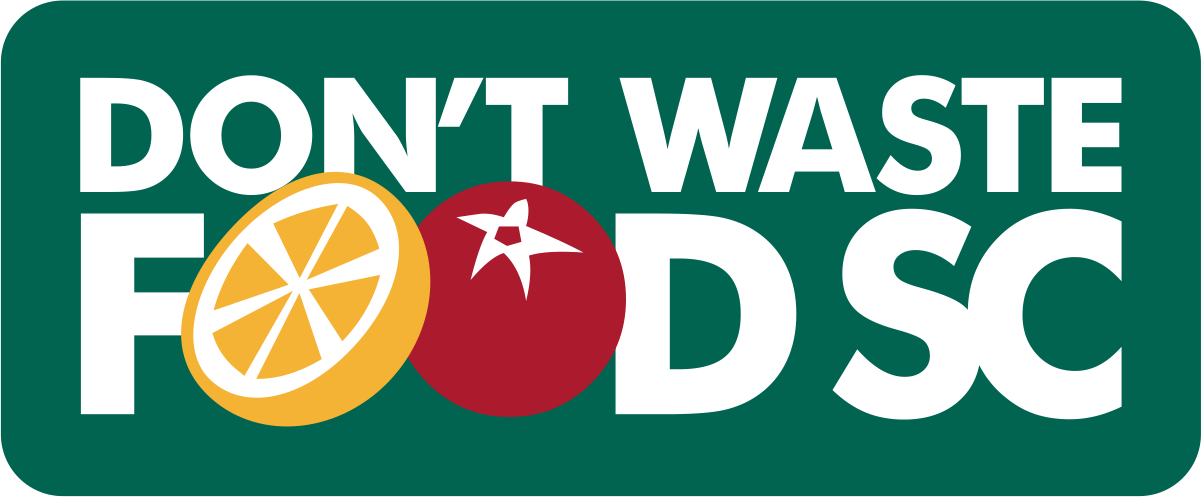Don’t Waste Food SC is a collaborative outreach campaign that brings together ambassadors from the public and private sectors to share knowledge, coordinate resources, and work together to reduce wasted food in South Carolina.
Why food waste? Food is the No.1 item Americans throw away. Each year up to 40 percent of the nation’s food supply is never consumed – an annual loss of $218 billion. Wasted food also wastes resources. Any labor, energy, water, land, and other resources used to produce, package, and move food from the farm to our plates are lost.

All of this while more than 38 million Americans are food insecure. At home, one in eight South Carolinians, including almost 200,000 children, face hunger.
Food waste occurs at all steps of the farm-to-plate system. Fields are left unharvested because farmers can't sell produce that doesn’t look perfect. Manufacturers face assembly line inefficiencies. Transportation must move products quickly to avoid spoilage. Grocery stores overstock to appeal to customers and must meet strict corporate quality standards. Restaurants serve large portions and end up trashing leftovers. At home, where most food is wasted, consumers lose track of their kitchens' contents and are often confused by date labels.
Benefits of Food Waste Prevention:
- Feed those in need. Donated food can help feed hungry South Carolinians.
- Save money. The average family of four spends $1,500-$1,800 a year on food that goes uneaten.
- Conserve resources. Preventing waste saves the land, water, energy, labor, and transportation used to fuel the food system.
- Stop feeding landfills. Food is the largest category of material going into municipal solid waste (MSW) landfills.
- Reduce greenhouse gas emissions (GHGs). When food decomposes in a landfill, methane is emitted. MSW landfills are one of the leading sources of human-related methane emissions in the United States.
Still, food waste is a solvable problem. The goals of the campaign are to:
- Increase the awareness of the economic, environmental, and social impacts of wasted food;
- Inspire individuals and groups to take action to reduce food waste through prevention and donation;
- Encourage South Carolinians to recover unwanted food through composting and other practices; and
- Cut South Carolina’s wasted food in half by 2030.
The campaign, created and led by SCDES, provides:
- Outreach and education material;
- Technical assistance through best management practices;
- Research and data; and
- Coordinated planning with all stakeholders on steps to meet the 2030 goal.
The campaign is a partnership of SCDES and the S.C. Department of Commerce as well as many Ambassadors. For more information, please send an e-mail to dontwastefoodsc@des.sc.gov.

